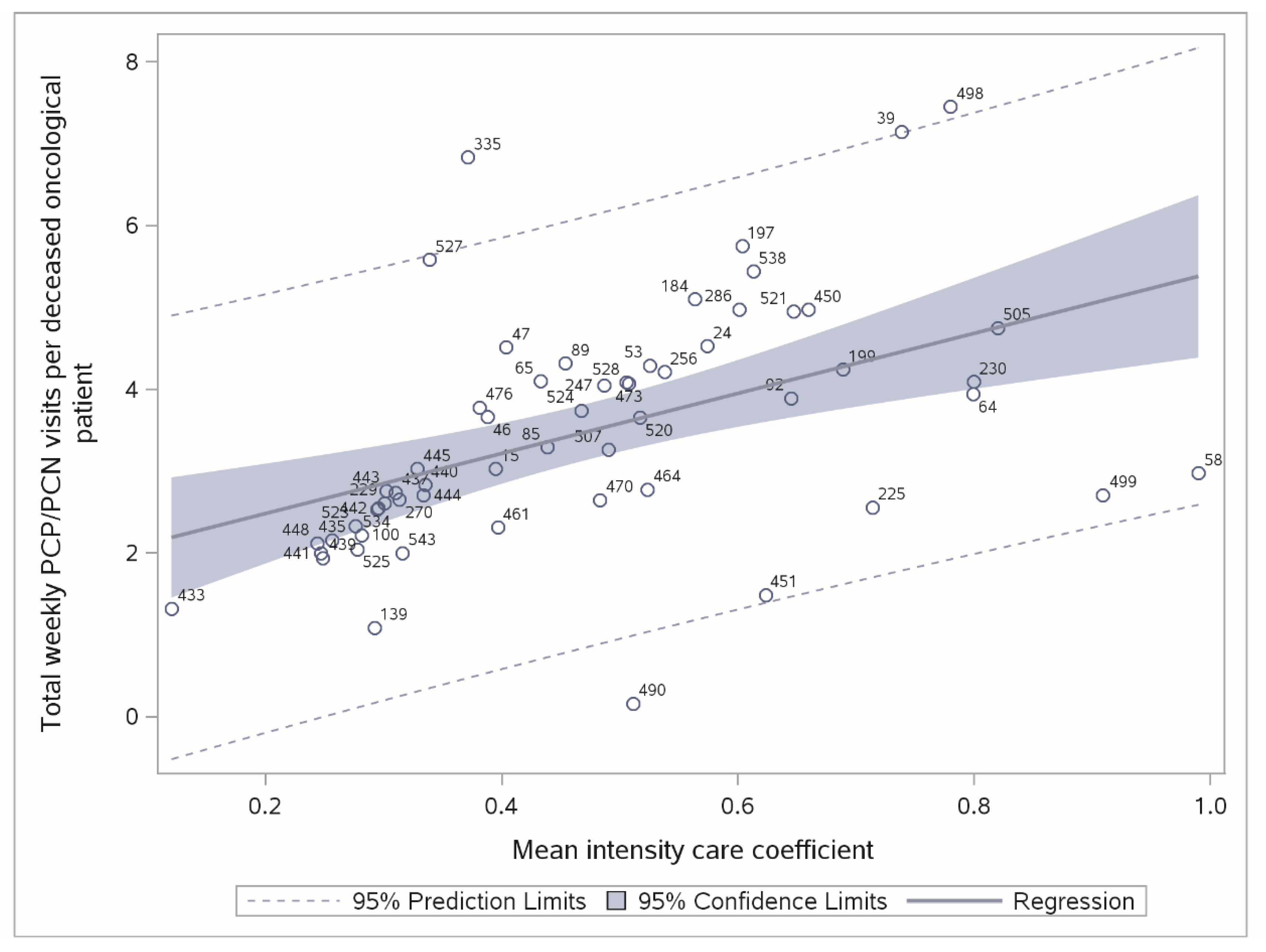Table of Content
If he or she doesn't suggest it, the person can ask a health care provider for a referral. Through our palliative care services, we aim to improve your overall well-being if you are suffering from a serious illness or disease from the initial point of diagnosis. As you face the challenges of receiving treatment and managing your symptoms and side effects, we assist you and your loved ones with medical, emotional, social, spiritual and practical support services to enhance your life. Our Program provides personalized, home-based primary and palliative care to people with complex and serious illnesses. We coordinate care with a range of health professionals in the hospital and home setting, working closely with home care, visiting nurse, community, and hospice agencies.
They worry about being audited ahead of client safety and careplans. Moved from ANHF on the prospect that Home Caring would be more flexible and quicker. Initially, good but Dementia Caring has grown and there is more management. Probably should have stuck with ANHF as at least they have a larger staff pool. Always very accommodating and available to answer any questions that arise. Great team, very person centred approach, They will go out of their way to make things work for you.
Experiences of being in hospital for people with a learning disability and autistic people
Great service with bargain price , best provider in Sydney . Find that as this is a smaller service the service provided is personalised and spot on. Homecaring Newcastle is probably the best place I’ve worked for. I have been with Nicole and Frank for 2 years now and not only do they support their clients they support their staff with dignity and respect. Contact us today and we can guide you through the process, whether that’s NDIS or Home Care Packages. We can also provide privately paid services when you don’t have any government funding, or while you’re waiting for approvals.
Visit the National Hospice and Palliative Care Organization website to find palliative care near you. We will work collaboratively to eliminate systemic barriers to under-represented and racialized groups, and work towards a workforce that reflects the diverse communities we serve, with the goal of optimizing patient and family outcomes. Other amount - Your kind gift will help support research, care and awareness. A gift of £50 could help fund MND Support Grants, giving a person with MND more independence. A gift of other amount Your kind gift will help support research, care and awareness. A gift of £10 a month for a year could fund a specialist app to help someone with MND continue to communicate.
Integrated care for older people (ICOPE) implementation pilot programme
The goal is to prevent or treat, as early as possible, the symptoms and side effects of the disease and its treatment, in addition to any related psychological, social, and spiritual problems. Patients may receive palliative care in the hospital, an outpatient clinic, a long-term care facility, or at home under the direction of a licensed health care provider. Anyone can receive palliative care regardless of their age or stage of disease. As demonstrated by the case of Mrs. Smith and confirmed by the literature, palliative care effectively supports the best quality of life for patients suffering prolonged illness. Through its interdisciplinary, holistic, and patient-centered approach, hospitals with palliative care services fulfill their ethical obligation to provide quality, beneficial care to all patients.

Mrs. Smith stated that she would not want any heroic measures taken, such as cardiopulmonary resuscitation, if she would not be able to return home with an acceptable quality of life. The palliative care phase identifies a clinically meaningful period in a patient’s condition. The palliative care phase is determined by a holistic clinical assessment, which considers the needs of the patients and their family and carers. A change in palliative care phase represents a change in the person’s clinical condition and/or a change in the patient’s carers or family. These changes lead to a change in the patient’s care plan.Five palliative care phases are possible.
What issues are addressed in palliative care?
When a person is diagnosed with a serious illness, they should prioritize early advance care planning conversations with their family and doctors. Studies have shown that patients who have participated in advance care planning are more likely to be satisfied with their care and have care that is aligned with their wishes. It is important to remember that stopping treatment aimed at curing an illness does not mean discontinuing all treatment.

Working closely with physicians, manufacturers, and payers, we develop innovative new approaches to confronting cancer, increasing the effectiveness of care, and ensuring a better patient experience. Our wide reach also helps ensure that patients everywhere in small towns as well as major cities can receive advanced, comprehensive care close to home. When life expectancy becomes limited, our hospice team offers comfort and care at a most sensitive time. We encourage patients to strengthen connections, have important conversations and embrace the time spent with loved ones during the transition to this important stage. Our personalized holistic approach to hospice care includes relief of pain and symptoms, emotional and spiritual support for both patients and loved ones.
Support groups
Ideally, you would want to see her battle the pneumonia, come off the respirator, and return home to a happy life. In the meantime, you would want her pain to be relieved, her breathing to be eased, and her spiritual and financial concerns to be recognized. If recovery to her previous state of health was not possible, you would want to assure that your mother received care that was consistent with her personal values. Achieving this primary goal of supporting patient quality of life is ethically required because actions or omissions that hinder the best quality of life can be physically and emotionally harmful. Presuming to know what a patient's desired quality of life is without asking violates patient autonomy and thus, also violates the dignity of the patient. Hospital in-patient palliative care services coordinate various hospital resources and departments in order to provide quality patient care and fulfill the ethical duty to provide beneficial care that respects patient autonomy.

Palliative care is specialized medical care for people living with a serious illness, such as cancer or heart failure. Patients in palliative care may receive medical care for their symptoms, or palliative care, along with treatment intended to cure their serious illness. Palliative care is meant to enhance a person's current care by focusing on quality of life for them and their family. It is estimated that globally only 14% of patients who need palliative care receive it; to achieve Sustainable Development Goal 3, working towards universal health coverage, countries have to strengthen palliative care services. WHO works with countries to include palliative care as a key part of their health systems.
More infomation about how palliative care can help you is available on Better Health Channel’s End of life and palliative care services page, under the ‘Living with a life-limiting illness’ tab. Payment, billing, and fundraising tools for inpatient and community-based palliative care programs. Home-based palliative care program efficiency depends upon balancing the need for patient contact with drive times. Many programs use telehealth to maintain contact with patients when home visits are not required, in order to enable program growth and scale. Today, serving as both a health care service and a teaching platform for medical students, residents, and fellows, the Mount Sinai Visiting Doctors Program stands as a flagship clinical initiative.
For the sickest patients, this means care delivered in the home. Practices participating in the Serious Illness Population option under CMMI’s Primary Care First initiative can especially benefit from these tools. Although hospice provides a lot of support, the day-to-day care of a person dying at home is provided by family and friends. The hospice team coaches family members on how to care for the dying person and even provides respite care when caregivers need a break. Respite care can be for as short as a few hours or for as long as several weeks. Adriana developed anemia while she was being treated for breast cancer.
The profile program helps understand the demand for palliative care in a service. This is achieved through identifying the characteristics of those that need palliative care and the number that need it. The program allows for understanding how the needs of patients in your service change over time and service activity.
Clarifying team roles and responsibilities on the interdisciplinary team to ensure positive relationships and productivity. Part of the Improving Team Effectiveness series, this session covers building and sustaining a stable, effective interdisciplinary team. Ask questions on topics such as hiring and onboarding, role clarity, team communication, and preventing burnout. Hiring and onboarding methods to ensure strong team culture and clinical standardization. Plan your professional development for by checking out our Masterclass program! Palliative Care South East respectfully acknowledges the First Nation peoples of Australia as the traditional custodians of the land on which we now live and work and recognise their continuing connection to land, water and community.
By responding to your needs and those of your family in this way, your palliative care team can help you make the most of each day. End of life and palliative care in Victoria is based on person-centred care, which means you and your family are treated in the way you want to be treated. End of life and palliative care offers emotional and practical support to families, friends and carers. Like palliative care, hospice provides comprehensive comfort care as well as support for the family, but, in hospice, attempts to cure the person's illness are stopped.

If you intend to assess the patient more than once, use the episode form instead. The profile program identifies the profile of those that may benefit from palliative care. This brief form allows you to capture, analyse and use referral and demographic information. This information is used to produces a profile report for your service.

No comments:
Post a Comment